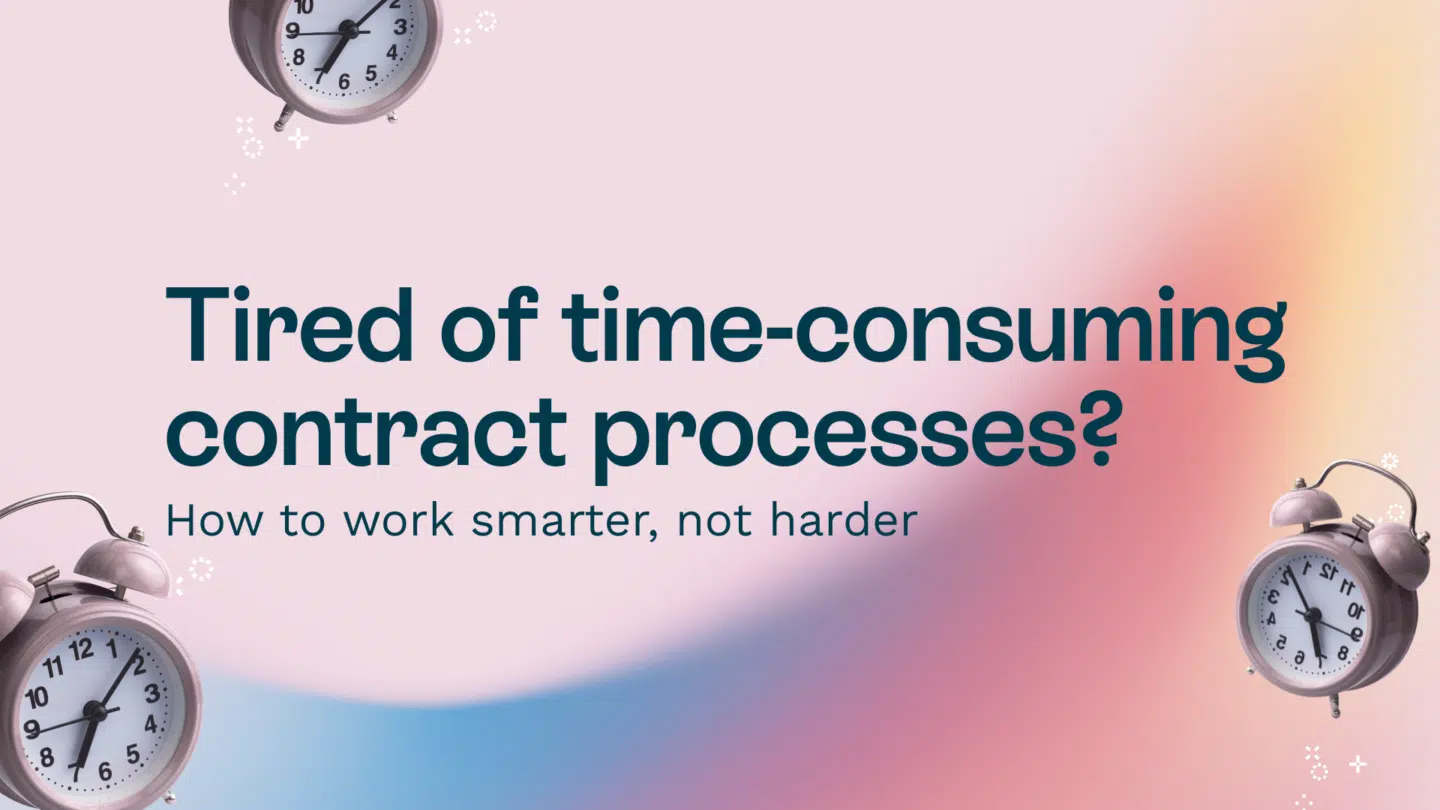Are you considering entering into a spoken word agreement? While written contracts are the standard in business agreements, spoken word agreements can also be legally enforceable under certain circumstances.
In this comprehensive guide, we will explore the importance of spoken word agreements, the essential elements that should be included, the steps to create an agreement, and the necessary measures to ensure its enforceability. So, let’s dive in and learn how to create a spoken word agreement step-by-step.
Why is a spoken word agreement important?
In today’s fast-paced business world, verbal contracts can play a crucial role in establishing agreements. While written contracts provide a solid foundation, spoken word agreements can offer flexibility and save time in certain situations. However, it’s important to understand the legal implications of relying on verbal agreements in a business context.
Read also: Electronic signature: The benefits and how it works

The role of verbal contracts in business
Verbal agreements serve as an efficient means of conducting business transactions, particularly in situations where time is of the essence or the parties involved have a long-standing relationship. These agreements can be formed quickly and easily through spoken communication, allowing parties to bypass the time-consuming process of drafting and negotiating a written contract. This flexibility can be especially beneficial in industries that require rapid decision-making and where parties need to act swiftly to seize opportunities.
For example, in the fast-paced world of technology startups, entrepreneurs often rely on verbal agreements to secure partnerships and collaborations. In these dynamic environments, where innovation and agility are paramount, the ability to quickly reach an agreement through spoken word can be a game-changer. By avoiding the delays associated with drafting and reviewing written contracts, entrepreneurs can seize opportunities and make progress at a rapid pace.
Furthermore, verbal agreements can be particularly useful when dealing with long-standing business relationships. In situations where trust and mutual understanding have been established over time, parties may feel more comfortable relying on spoken word agreements. This can foster a sense of collaboration and cooperation, as both parties can focus on the essence of the agreement rather than getting bogged down in legal jargon and formalities.
Legal implications of spoken word agreements
While written contracts are generally preferred, spoken word agreements can still hold legal weight if certain conditions are met. These conditions usually involve the presence of witnesses, clear terms and conditions, and a reliable means of documenting the agreement. Failure to meet these requirements can lead to disputes and potential difficulty in enforcing the agreement.
When it comes to the enforceability of verbal agreements, the legal landscape can vary depending on the jurisdiction. In some jurisdictions, certain types of agreements must be in writing to be enforceable, such as contracts involving the sale of real estate or agreements that cannot be performed within one year. It’s crucial for businesses to familiarize themselves with the specific legal requirements in their jurisdiction to ensure the validity of their verbal agreements.
Moreover, even when verbal agreements are legally enforceable, they can present challenges in terms of evidence. Unlike written contracts, which provide a clear record of the parties’ intentions and obligations, verbal agreements rely heavily on the memories and recollections of the parties involved. This can make it difficult to prove the existence or terms of the agreement in the event of a dispute.
However, advancements in technology have made it easier to document and preserve evidence of verbal agreements. For instance, businesses can utilize audio or video recordings of discussions and negotiations to provide a more concrete record of the agreement. Additionally, follow-up emails or correspondence summarizing the key points discussed can serve as supplementary evidence in support of the verbal agreement.
It’s important to note that while verbal agreements can be legally binding, they are generally considered to be riskier than written contracts. The lack of a written document can lead to misunderstandings, misinterpretations, and potential disputes. Therefore, it’s advisable for businesses to seek legal advice and consider formalizing important agreements in writing to minimize risks and ensure clarity.
Read also: Are verbal contracts legally binding?

Essential elements of a spoken word agreement
Before diving into the step-by-step process of creating a spoken word agreement, it’s essential to understand the core components that should be included. These elements will ensure clarity and avoid ambiguity, reducing the risk of disputes arising at a later stage.
Identifying the parties involved
The first step in creating a spoken word agreement is to clearly identify the parties involved. This includes providing full names, contact information, and any relevant identification numbers or business registration details. By clearly identifying the parties, you establish a foundation for mutual understanding and accountability.
Defining the terms and conditions
Next, it is crucial to outline the terms and conditions of the agreement. Clearly state the obligations, responsibilities, timelines, and any other relevant details that the parties are committing to. By setting out these terms, you ensure that all parties have a clear understanding of what is expected of them.
Establishing the agreement’s purpose
Another important element of a spoken word agreement is defining the purpose of the agreement. This entails clearly outlining the goals and objectives the parties seek to achieve through the agreement. By establishing the purpose, you align the intentions of all parties and avoid potential conflicts in the future.
Read also: How to successfully negotiate an agreement?

Steps to create a spoken word agreement
Now that we have covered the importance and essential elements of spoken word agreements, let’s explore the step-by-step process of creating one.
Preparing for the conversation
Prior to engaging in a discussion concerning the agreement, it’s crucial to prepare adequately. This involves conducting research, gathering all relevant information, and considering any potential obstacles or concerns that might arise during the conversation. By being prepared, you can ensure a productive and efficient agreement discussion.
Conducting the agreement discussion
During the agreement discussion, clearly communicate all the terms and conditions while encouraging open dialogue between the parties involved. It is essential to actively listen, address any concerns, and seek agreement on each component of the spoken word agreement. Taking detailed notes throughout the discussion is beneficial for future reference.
Confirming the agreement
To ensure the enforceability and clarity of the spoken word agreement, it’s crucial to confirm the agreement in a documented form. This can be done through a follow-up email or letter summarizing the key points discussed and agreed upon during the conversation. Request that all parties acknowledge the accuracy of the summary and provide any necessary revisions.
Ensuring the enforceability of your spoken word agreement
While spoken word agreements can be legally enforceable, certain measures should be taken to strengthen their enforceability.
Importance of witnesses in verbal agreements
One way to enhance the enforceability of a spoken word agreement is by having witnesses present during the agreement discussion. Witnesses can provide independent testimony should any disputes arise in the future. Their presence adds credibility and strengthens the agreement’s legal standing.
Recording the agreement for future reference
Another crucial measure is recording the spoken word agreement for future reference. This can be done by audio or video recording the agreement discussion. By having a record of the conversation, all parties involved can refer back to it if any misunderstandings or disputes emerge. This recording acts as solid evidence, strengthening the agreement’s enforceability.
Read also: A complete guide to unilateral contracts

Common mistakes to avoid when creating a spoken word agreement
Even with the best intentions, mistakes can still occur during the creation of a spoken word agreement. Here are some common errors to avoid:
Vague terms and conditions
Avoid using ambiguous language when defining the terms and conditions of the agreement. Clearly articulate each party’s obligations, responsibilities, and agreed-upon outcomes to minimize future misunderstandings. If necessary, seek legal advice to ensure your terms are specific and enforceable.
Lack of evidence and documentation
Failure to record or confirm the agreement in writing can lead to difficulties in enforcing the spoken word agreement. Always document the agreement through written summaries or recording methods discussed earlier. This protects both parties and ensures clear evidence of the agreement’s existence.
The key takeaways
Spoken word agreements can be a valuable tool in business transactions, providing flexibility and saving time. By understanding their importance, including essential elements, following the step-by-step process, and taking necessary measures to ensure enforceability, you can create a strong spoken word agreement. Remember to avoid common mistakes and seek legal advice if needed. With proper care and attention, spoken word agreements can effectively support your business endeavors.








